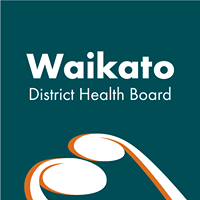Waikato Hospital worldwide search for ED director

Click to enlarge
Waikato Hospital has begun
a worldwide search for a new clinician to
head its
emergency department, not only one of the busiest in
the
country but soon to be the newest.
Dr Shameem
Safih, the department's clinical director for 10
years,
takes up a position as Health Waikato southern
rural hospitals emergency
departments clinical director
next month.
Applications for the job close on 28 February.
Waikato Hospital group manager Dr Grant
Howard said he was determined
to find a clinical director
to provide operational, professional and
governance
leadership.
"Our emergency team has a vision and
single-minded pursuit of being
world class.
"I am
personally determined to find a clinical director of
the
calibre our emergency team deserves," said Dr
Howard.
Waikato Hospital has the biggest regional trauma
catchment in New
Zealand - more than 860,000 people in
the Midland region. The current
emergency department sees
more than 54,000 patients a year. When Dr
Safih started
in 2000, there were 43,000 patients.
A new emergency
department will be ready to occupy in January
next
year.
It will have 65 spaces compared to 52
currently, four resus rooms,
double the current number
and two purpose-build procedural sedation
rooms.
There
will also be a larger area for children with 16 bed spaces,
up
from eight, and including six purpose-built short stay
beds for
paediatrics.
Above the emergency department,
on two levels, there will be a new
medical assessment
unit with 100 beds.
"It will get everyone else in the
organisation playing their role in
the management of
acute care patients," says Dr Safih.
The Fijian doctor has
seen many changes in the last decade. He
believes
Hamilton has become a more violent
city.
"There's a lot more assaults. Knifes, weapons, kicks
and punches
all resulting in multiple serious
injuries."
He also believes lowering of the drinking age
to 18 made emergency
departments busier places.
Low
point of his time in the department also includes the
increasing
numbers of teenagers presenting drunk.
"When
the drinking age lowered we saw a definite increase in
the
number of teenage drunks - about 13, 14 and 15 years
old. They become
really, really
drunk."
ENDS



 Mana Pasifika: Mana Pasifika Bid For NRL Expansion Unveiled
Mana Pasifika: Mana Pasifika Bid For NRL Expansion Unveiled University of Auckland: Sir Collin Tukuitonga Becomes A Professor
University of Auckland: Sir Collin Tukuitonga Becomes A Professor Arthritis New Zealand: Māori And Pasifika Health Equity A Focus In Arthritis NZ’s $420K Research Grants
Arthritis New Zealand: Māori And Pasifika Health Equity A Focus In Arthritis NZ’s $420K Research Grants New Zealand Nurses Organisation: New Report Highlights The Need For Culturally Safe Māori Nursing Ratios
New Zealand Nurses Organisation: New Report Highlights The Need For Culturally Safe Māori Nursing Ratios Angela Wanhalla & Jacinta Ruru, The Conversation: Books Of Mana - 10 Essential Reads For Waitangi Day
Angela Wanhalla & Jacinta Ruru, The Conversation: Books Of Mana - 10 Essential Reads For Waitangi Day FASD-CAN: People With Fetal Alcohol Spectrum Disorder (FASD) Dismayed At Government’s Response To The Rights Of Disabled People
FASD-CAN: People With Fetal Alcohol Spectrum Disorder (FASD) Dismayed At Government’s Response To The Rights Of Disabled People